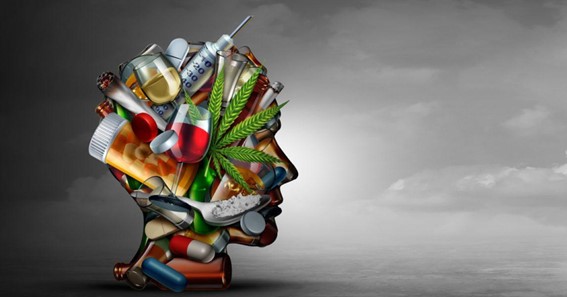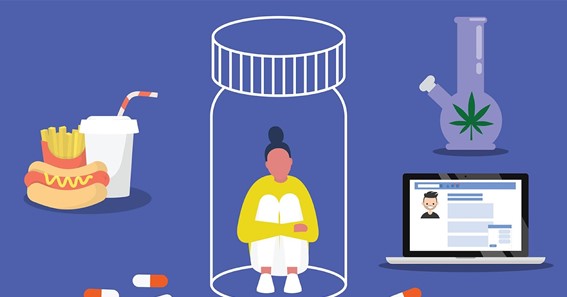Addiction to something life-threatening is always a cruel thing, and a lot of people must deal with it daily. As a result of their addiction to narcotics and alcohol, people who are loved and accomplished can become desperate, lonely husks of their former selves, tearing up their families and destroying their lives.
Even though the repercussions will be terrible, there is a light at the end of the tunnel to guide us forward. Individuals can overcome their dependence on drugs or alcohol with the support and supervision of a substance addiction treatment program. Click on this link to find out more interesting information about the topic https://kidshealth.org/en/teens/addictions.html2.
For both addicted persons and their families, having a basic grasp of the five phases of addiction therapy may be quite useful. During each stage, you will learn about the processes involved in recognizing and addressing a problem, arranging for addiction treatment, and dealing with life after treatment for alcohol and drug addiction. It is a comprehensive theory that is congruent with the majority of evidence-based as well as holistic therapies, including, among other things, the 12-step program and behavior therapy.
click here – Innovate Software in Solar Industry
In what ways does a transformation progress from one stage to the next?
The five phases of addiction rehabilitation are pre-contemplation, contemplation, preparation, action, and maintenance. Pre-contemplation is the first step of addiction treatment. Continue reading to find out more about the various steps of the process.
Pre-contemplation is the first stage of the process
During the early stage of addiction recovery, the absence of preparedness for any form of addiction treatment program distinguishes it from other stages. This stage is characterized by defensiveness and an unceasing urge to defend their behavior. There is a noticeable lack of knowledge of the hazardous effects of excessive drug or alcohol usage, with a strong focus placed on the pleasurable advantages that individuals derive from consuming their substance of choice rather than the adverse consequences.
As a result of a lack of information about addictive behaviors, it is conceivable that someone may stay in this stage. People who are stuck in the pre-contemplation stage are also more likely to be disappointed after a series of failed attempts at recovery and treatment options, which we see on a regular basis.
Most people who are contemplating rehabilitation feel that it is just out of the question for them to receive treatment. The truth is that anybody can recover from any stage of a sickness or addiction. It just takes time and effort. Find out more on this page.

Contemplation is the next stage
It is clear that the thoughtful preparation that would define the subsequent phase will be present. That the individual is prepared to effect change in the future, but not immediately or quickly, demonstrates a willingness to make changes. In contrast to the previous stage, individuals are aware of the advantages of refraining from drugs and are actively seeking them out.
In contrast, their acute awareness of the advantages they derive from alcohol or drug addiction has not waned with time. Because the individual is more likely to listen to reason at this phase, it is a crucial time for relatives and treatment facilities to intervene. Keeping blame, making judgments, and making allegations out of the equation will allow us to assist them through the process.
click here – Risk Factors to Avoid While Trading in Cryptocurrency
Then begins the preparation stage
Instilling a sense of urgency about their goal of sobriety in their minds as they proceed through the preparation stage is a key component of the process. They have typically made some steps in the direction of action, such as opting to join a gym, consulting with a counselor, or attempting to break free from addiction without the support of a rehabilitation clinic or other treatment institution.
In this phase, it is common for individuals to go for a day or two without turning to drug dependency, but it is also quite fine for them to return to contemplation or pre-contemplation if they face triggers or are dealing with difficult emotions.
Let us not forget about the implementation stage
When someone reaches the action stage, they have made significant changes in their life and have made a commitment to continuing to develop. The urge to seek professional treatment before or after relapse is strongest during this stage of change, and individuals experience longer durations of abstinence during this stage of change as well.
They will see changes in a few aspects of their lives because of their decision, rather than just putting an end to their destructive behavior. Even though self-care and self-understanding are both there through this whole stage of therapy, counseling is required to keep them on the right track as they go through the process of therapy.
Last but not least is the maintenance stage
After successfully completing addiction recovery in a rehab center like Mountain Springs Recovery Addiction Rehab, among many others, the individual is in the maintenance stage, when they are exerting tremendous effort to avoid relapse.
They are also keeping up with the lifestyle changes they have made, such as taking regular exercise as well as engaging in recreational activities, remaining sober, paying attention to sleeping, and attending support meetings. Because they do not experience the temptation to relapse as frequently as those in the action stage, their confidence grows, and they have true faith in their ability to remain clean in the long run. Keeping their mind preoccupied with healthy habits will also keep them from going back to their old, unhealthy lifestyle.
This time might last anywhere from six months to five years, depending on the severity of the addiction, as well as the individual’s genetics and life experience. A small percentage of people require six months of abstinence from their addictive behavior to reach the point where they are no longer prone to relapsing into their addictive behavior. For most of the population, however, it will take a commitment of two to five years to completely break the habit and develop a new pattern.

